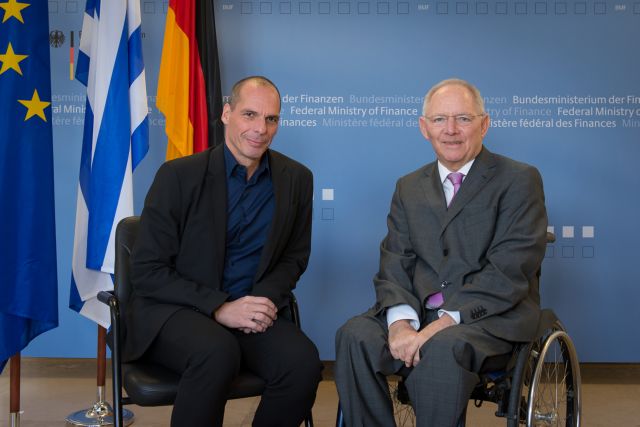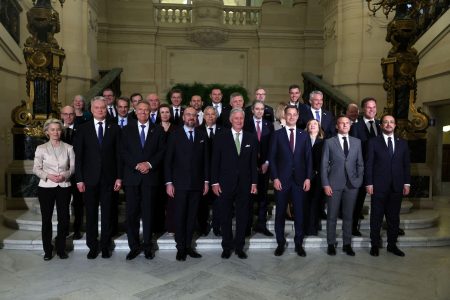The Greek government and its European partners will begin discussions at the critical Eurogroup session on Wednesday evening, with each side proposing fundamentally different perspectives and solutions.
In his Tuesday evening speech in Parliament, PM Alexis Tsipras made it clear that his government would adopt a hard stance and that his coalition government will not sign an extension of the current bailout program. Mr. Tsipras will claim an extension of the loan agreement though, so that Greece can keep on top of its debts while it negotiates a new agreement. Greece’s European partners however argue that the loan and bailout agreement go “hand in hand”.
The Greek government wants a 3-6 month period to negotiate a post-bailout, four-year plan and discuss the country’s public debt. The government’s goal is to settle the debt in such a way so that it does not need to take out new loans to pay off the older ones. The Prime Minister explained that the only way for Greece’s creditors to be paid back is for growth to flourish.
According to Mr. Tsipras, growth will come from public, rather than private, investments. While the PM has not revealed how these investments would be funded, his Finance Minister Yanis Varoufakis has spoken of a European “New Deal”. While Mr. Tsipras argues that these investments will benefit the whole of Europe, Europeans may be skeptical at the prospect of giving out further aid, unconditionally to Greece.
Amongst Greek demands are to receive 1.9 billion euros, from the profits generated by Greek bonds held by European banks. Greece may only receive these funds though if it is in a program. Greece has also asked to raise its Treasury bill issuance ceiling by 10 billion euros (which the ECB has rejected) and to use the remaining 11 billion euros in the FSF. If Greece were to remain with the growth-stifling bailout program it would receive 7.2 billion euros with an average interest rate between 1% and 1.5%, however the government is requesting 21 billion euros outside the program, which may have an average interest rate of 3%.
The Greek government has repeatedly stressed that it received a popular mandate, which has rejected the austerity policy and the bailout agreements. On the other hand, Brussels and Berlin in particular counter argue that the outstanding review that the Samaras/Venizelos administration failed to complete must conclude and all structural reforms implemented before any discussion of debt relief can begin.
Furthermore, so long as Greece has not negotiated a program, then the country’s banks will remain excluded from the ECB and will have to rely on the ELA for liquidity, while Greece will also not be liable for inclusion in the ECB’s quantitative easing program. With both sides adamant about their goals, a compromise from both sides will be necessary for an agreement.





